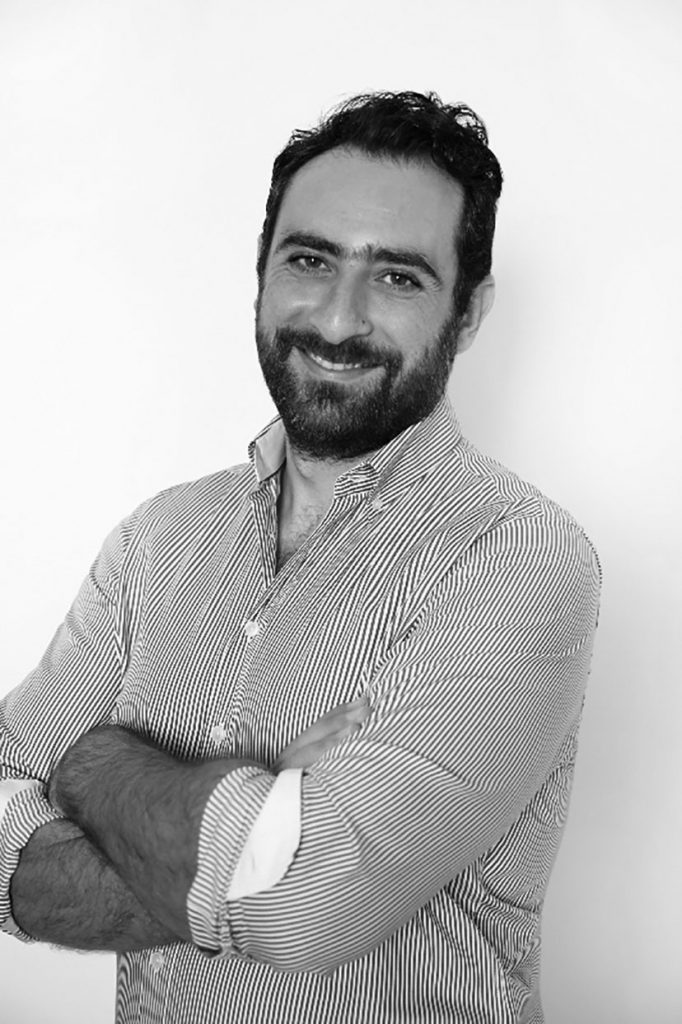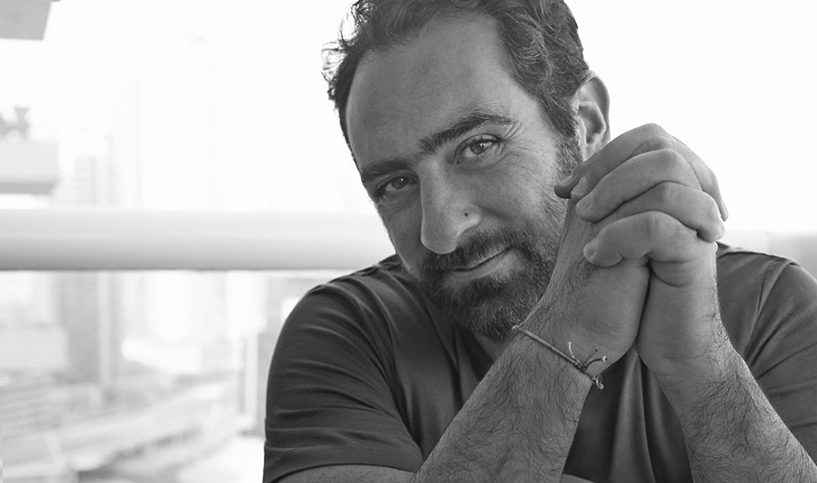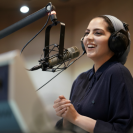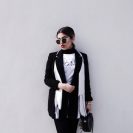Nothing signals the start of the creative and cultural season in Kuwait like marking our calendars for an upcoming Nuqat Regional Conference. This year, Nuqat further marks a milestone 10-year anniversary, and while the announcement has the entire region buzzing with excitement, Kuwait’s Nuqat-goers must be wondering how this year’s theme, focused on discussing the ‘State of the Elastic Mind: A New Mindset for Old Barriers’, will bring thinkers, creatives, activists, and policymakers from all over the Arab World to Kuwait.
All in the effort to better understand, properly critique and reframe mindsets that have shaped prevalent, and even endemic, social structures in the Arab world, bazaar has partnered with Nuqat to bring you this exclusive Speaker series, which aims to introduce some of the great minds flying in for the special 10-day conference that will take place at the Amricani Cultural Center this November.
Constantly pushing the envelope with his novels, author Fadi Zaghmout is a gender activist and blogger who will surely enhance our collective understanding of elastic thinking. His first two novels The Bride of Amman and Heaven on Earth were bestsellers in the Middle East and started off his career as an author, and his third novel Laila and the Lamb, a feminist thriller, was published by Egyptian publisher Kotob Khan in July 2018. Fadi holds an MA in creative writing and critical thinking from Sussex University in the UK.
What are you looking forward to the most about coming to Kuwait?
I am really looking forward to attending the 2019 Nuqat conference. It’s my first time to participate and I am very excited about having the opportunity to be on stage to talk about my upcoming novel, which tries to imagine a parallel society where gender is divided based on height, rather than gender. It’s also my first time in Kuwait and I look forward to learning more about the country and the local culture and its people.
Which book changed your life?
It is definitely Who Moved My Cheese by Spencer Johnson. It’s a small book but very impactful. I got it as a gift from a colleague at a time I was feeling down, unhappy with my career, and feeling that “my cheese” was about to run out. It motivated me to start reading again at the time, and empowered me to face my fears and pursue my dreams.
What did you want to be when you were growing up?
At one point I was fascinated with genetics and I was dreaming about becoming a genetic engineer when I grow up. I wanted to learn more about the code of life and contribute to human knowledge in the field. This desire came back to me when I was writing my second book Heaven on Earth that tries to read a nearby future when science defeats ageing. It still haunts me from time to time, and maybe one day, I would have the means to delve into that field, learn, and hopefully add to it. Who knows?!
Is there a turning point or an experience in your life that made you change your mindset or practice elastic thinking? If there is – please take us through that process. I.e. what was your initial mindset, what was the experience you were faced with that triggered you to change your mindset and what mindset are you in now?
I am not sure if there was a specific turning point, I guess it was more of an accumulative experience. I recall growing up in a private school in Amman with liberal teaching views.
My sister was a year younger than me, and we grew up together, becoming very close during our teenage years. You know, that age is very sensitive, and it’s the age where one’s gender identity starts to shape up.
As a young man, I was receiving all of these cultural messages about honor, and the role of men in society. And I remember myself at one point trying to comment on my sister’s choices of dressing – to be more conservative.
Thank God, I had a strong-willed sister, who wouldn’t tolerate my interference and stood up for herself telling me to mind my own business. That made me review my behavior, and my way of thinking, and grow to understand that if I want to be a good brother, I’d better fight and protect her freedom to choose for herself, rather than enforce inherited outdated cultural values out of fear of others’ perception of my gender identity.
Have you faced any structural, social or personal barriers in your personal or professional journey? If so, what were they?
Yes, I think that over the years I have faced and overcame many structural, social and personal barriers in my career as a writer. It’s not easy to become a writer and make a name for yourself. The publishing industry in the Arab world has never matured like in other parts of the world, yet it has been facing same challenges with the digital transformation happening in the past few years.
Of course, the digital era came with its pros and cons. On one hand, it helped me break traditional barriers but on the other hand, publishers have been facing huge difficulties in surviving and embracing new era models. Besides the industry, breaking some social barriers haven’t been easy too. I started writing as an activist, motivated by our society’s need for sexual freedoms and body rights. I have a passion for gender equality and a strong desire to stand up and challenge the social obstacles that are still holding us back.
Last year, my latest book Laila and the Lamb was published in Cairo by Kotob Khan after getting rejected by a dozen of other publishers. The book got banned in my country, Jordan, the minute it hit its shores and the reason given by the print and publication department is that the book “promotes foreign ideas, describes the sexual intercourse and contains foul language”. I consider the book to be a radical feminist book, and I wanted to challenge mainstream perception of women sexuality. I guess, for the censor, it is a “foreign idea” that should be banned.

What would you consider to be the starting point of your career?
My writing career started in January 2012 at the age of 33 when my first book Aroos Amman (The Bride of Amman) got published. I started writing before on my blog in 2006 which helped me in developing my writing and storytelling skills and paved the way for the first book.
What would your superpower be?
I think it is my compassion, my ability to relate to others, to read how people might feel in a specific situation and translate that into a good scene or story. But if I have to choose one, I would ask for a magic wand that allows me to erase old age, bring youth and vitality to people and keep them happy and joyful!
If you could go back in time, where would you go?
I would be interested in exploring Baghdad during its glory days of Abbasi era. Getting to understand the social structures at the time, witness the mix of cultures in the city, and the powers that made it ahead of its time.
What single thing would improve the quality of your life?
Its shorter working hours. I have a full-time job and do my writings on the side. It’s a normal 8 hours office work and I feel the quality of my life skyrocket during the month of Ramadan. Because I am not a Muslim, I don’t fast. Thus I enjoy the shorter working hours (6 instead of 8). Have more time to rest and socialize and work on my side hobbies. Ramadan lifestyle should be our standard way of living! I know many people would hate me for saying this! LOL!
How do you relax?
I love this question and I know very well how to relax. I enjoy my time resting on the couch and watching tv, reading a book or playing a video game.
What item would you put in a time capsule to help the next century understand our current moment?
My iPhone! and I would ask them to take a selfie video and record their reaction to this piece of outdated technology for them!
Stay updated about Nuqat’s latest on Instagram @nuqat and visit www.nuqat.me for more information. Featured image courtesy of Fadi Zaghmout.
For more Nuqat content, see our dedicated page, bazaar.town/category/nuqat.











